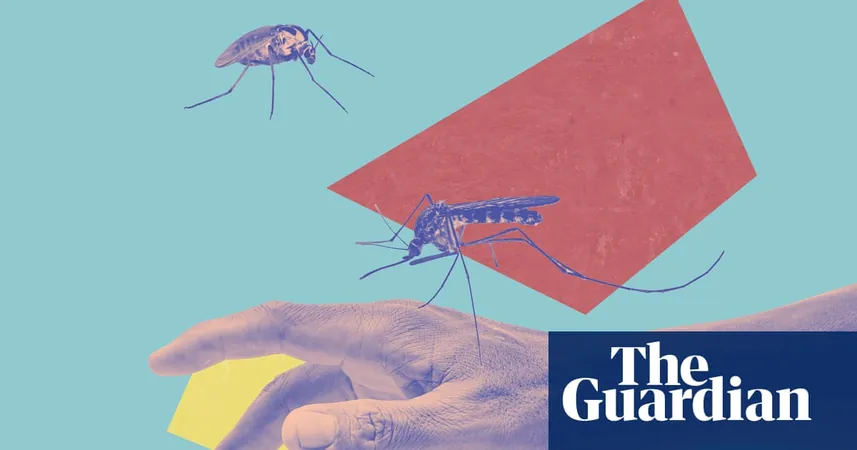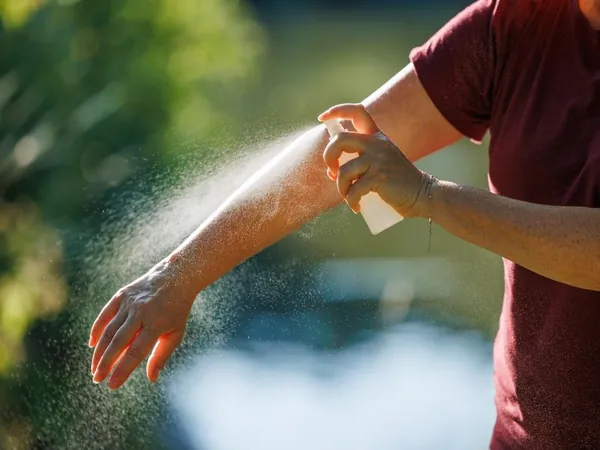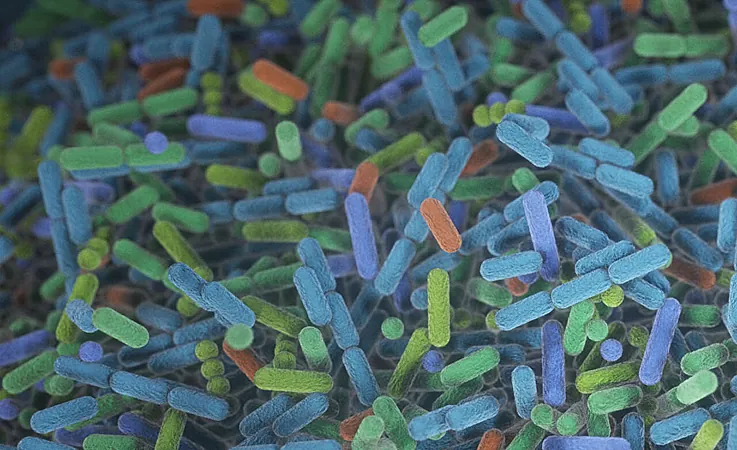
Beat the Bite: 14 Smart Strategies to Prevent and Treat Insect Bites This Summer!
2025-07-31
Author: Olivia
A Summertime Nightmare: Insect Bites and Stings!
As temperatures rise, so do the chances of getting feasted on by pesky insects! But fear not; we’ve got expert tips from pharmacists that will help you guard against bites and stings this summer.
Know Your Enemies: Which Bugs to Watch Out For
With heatwaves pushing populations of wasps to unprecedented levels, awareness is key. Claire Nevinson, a superintendent pharmacist for Boots UK, notes a spike in infected insect bites since April. Wasps might surprise you with their painful sting and potential allergic reactions, whereas bees and hornets are more reserved. Horseflies can lead to itchy, swollen bites, while ticks—often hiding in grassy areas—can carry Lyme disease.
Stay Alert in the Wilderness!
Virginia Chachati, a registered pharmacist, warns that midges and mosquitoes thrive in wooded and grassy areas. So if you’re camping or hiking, be extra careful! These bugs breed rapidly in stagnant water, so drain any leftover puddles around your home after playing outside.
Dress Wisely: Cover Up!
To thwart insect attacks, opt for long sleeves and trousers, especially if you're spending time outdoors. And stick to light colors—dark colors attract hornets and can sway ticks into climbing onto you. Don’t forget a hat; your scalp can be a prime target!
Avoid Provocations: Wasp Etiquette
Keep calm around wasps. They love food; so picnics attract them like magnets. If one lands on you, resist the urge to swat—stay still, and gently guide it away using paper or a cup.
Repel Those Pests!
When it comes to repellants, DEET is still your go-to for effective protection. For those sensitive to chemicals, alternatives like citronella can be kinder to the earth. Just remember to slather on your sunscreen before applying repellant.
Scent Matters: Go Fragrance-Free
It's a common misconception that only 'dirty' people attract bugs. In reality, it’s all about scents! Steer clear of heavily scented lotions and perfumes that can make you smell too sweet for those pesky pests.
Watch Your Drinking Habits
Interesting fact: drinking beer might increase your chances of getting bit by mosquitoes! A small study revealed a correlation, so keep your drinks in check during barbecues.
First Aid 101: What To Do if You Get Bitten
If you find yourself on the receiving end of a bite or sting, the first step is to clean the area with soap and water. If swelling occurs, a cold compress can work wonders. Hydrocortisone cream may help soothe inflammation, or you could dab on some natural remedies like aloe vera.
Don’t Scratch: That Only Makes It Worse!
While it may be tempting, scratching will only increase inflammation and the risk of infection. Instead, antihistamine creams can relieve itching.
Remove Stings or Ticks Carefully
Use fine-tipped tweezers to gently remove ticks, cleaning the area afterwards. Don’t use tweezers for bee stings; scrape the sting out and wash the site thoroughly.
Stay Safe: Know When to Seek Medical Help
It's crucial to be vigilant—if you notice symptoms like difficulty breathing or a spreading red rash, seek medical assistance immediately. For those traveling to areas where malaria is a risk, don’t forget your antimalarials!
Control Your Environment
Utilizing air conditioning or a fan can disrupt mosquito activity by making it harder for them to land. Using mosquito nets can also keep you safer during the night.
Take a Cool Shower!
Bugs love body heat and sweat — a refreshing shower can help reduce your attractiveness to these pests, especially after exercise.
Why Some People Get Bitten More Than Others
Ever wonder why some folks are bug magnets? It boils down to individual skin types, scents, and even blood types. Pregnant women and those with blood type O often find themselves targeted more. Your immune system can also influence how your body reacts to insect bites.
With these handy tips, you can protect yourself from the summertime scourge of bugs. Keep your cool, stay informed, and enjoy a bite-free season!









 Brasil (PT)
Brasil (PT)
 Canada (EN)
Canada (EN)
 Chile (ES)
Chile (ES)
 Česko (CS)
Česko (CS)
 대한민국 (KO)
대한민국 (KO)
 España (ES)
España (ES)
 France (FR)
France (FR)
 Hong Kong (EN)
Hong Kong (EN)
 Italia (IT)
Italia (IT)
 日本 (JA)
日本 (JA)
 Magyarország (HU)
Magyarország (HU)
 Norge (NO)
Norge (NO)
 Polska (PL)
Polska (PL)
 Schweiz (DE)
Schweiz (DE)
 Singapore (EN)
Singapore (EN)
 Sverige (SV)
Sverige (SV)
 Suomi (FI)
Suomi (FI)
 Türkiye (TR)
Türkiye (TR)
 الإمارات العربية المتحدة (AR)
الإمارات العربية المتحدة (AR)